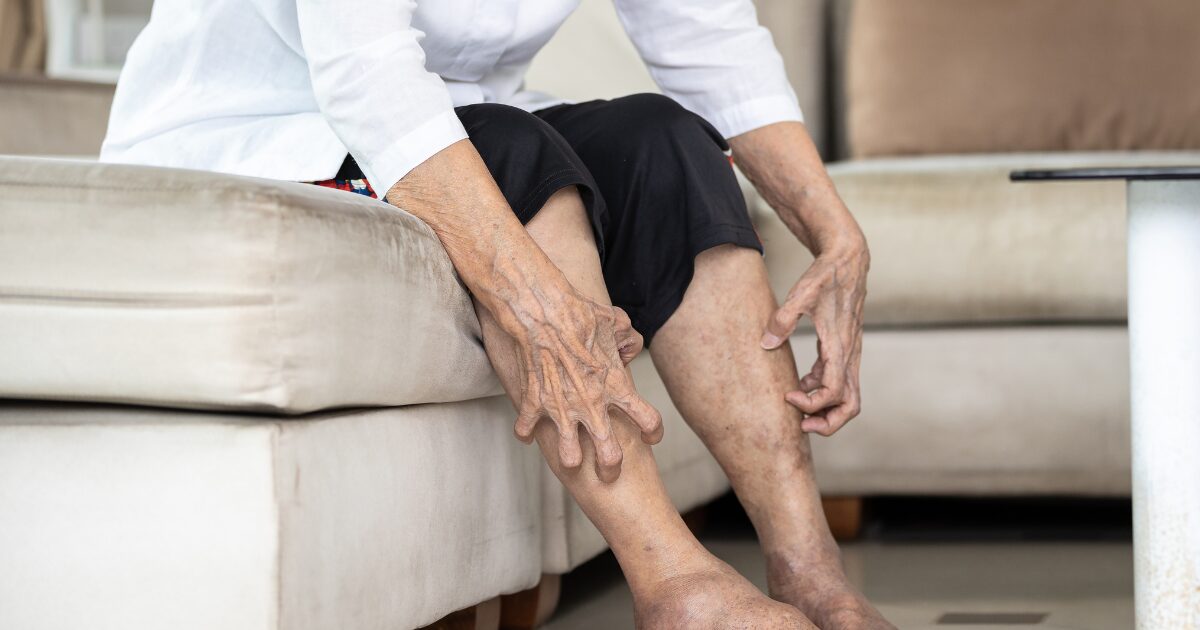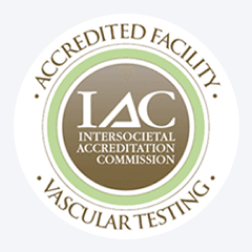Contents
- Understanding Post Procedure Itching and Numbness
- Why Do Itching and Numbness Occur After Vein Treatment?
- What Is Normal: Typical Healing Timeline and Symptoms
- Differentiating Normal Recovery from Complications
- Practical Tips to Manage Post Procedure Itching
- Managing Numbness After Surgery or Vein Treatment
- When to Seek Medical Advice
- Smooth Recovery After Vein Treatment: Tips for Comfort and Confidence
- Frequently Asked Questions
Itching and numbness after vein treatments can feel worrying, but these sensations are often a normal part of the healing process. Understanding what’s happening in your body can ease concerns and help you recover with confidence.
Itching is usually a sign that your skin is repairing and nerves are regenerating, while numbness can result from temporary nerve compression during the procedure. Knowing the difference between normal recovery and potential complications is key.
With the right care—keeping the area clean, moisturized, and monitored by your healthcare team—you can minimize discomfort and support proper healing. In this guide, we’ll share practical tips and expert insights to help you navigate post-procedure symptoms safely and comfortably.
Understanding Post Procedure Itching and Numbness
Itching and numbness are common occurrences after undergoing vein treatments. These sensations often indicate that your body is healing and responding to changes from surgery.
Itching usually arises as new skin cells grow and nerves begin to regenerate. This sensation is a typical part of the recovery process, albeit sometimes uncomfortable.
Numbness, however, generally results from nerves being compressed or even slightly damaged during the procedure. This can cause a temporary loss of feeling in the surgical area.
It’s important to comprehend these symptoms to manage them effectively. By understanding their nature, you can differentiate between normal sensations and potential complications.
Educating yourself about these symptoms helps in reducing anxiety and promotes a smoother recovery journey. Recognizing the natural healing process also equips you with the confidence to manage them more effectively.
Why Do Itching and Numbness Occur After Vein Treatment?
Vein treatment often involves minor surgical procedures. These procedures can impact your body in several ways, causing discomfort during recovery.
Itching is a frequent symptom due to healing skin and regenerating nerves. As your skin rejuvenates, the process may trigger mild itchiness.
Numbness typically results from nerves being affected during the surgical procedure. This is often due to the pressure or temporary damage sustained by nerves.
Understanding the reasons behind these sensations can aid in managing them efficiently. Here are common causes of post-procedure itching and numbness:
- Skin and nerves healing naturally.
- Nerve compression during the surgery.
- Minor inflammation around the surgical site.
By grasping these underlying factors, individuals can better appreciate their body’s recovery efforts. This knowledge empowers patients to take appropriate steps to ease symptoms, contributing to a comfortable post-procedure experience.
What Is Normal: Typical Healing Timeline and Symptoms
After vein treatment, understanding the normal healing timeline and symptoms can be reassuring. The first stage involves your body reacting to the procedure, usually with swelling and redness.
During the initial days, itching may intensify as the skin and nerves repair themselves. Numbness can persist in treated areas, gradually diminishing over weeks.
Healing progression varies, but most people notice significant improvement within a month. Regular care and attentiveness play vital roles in recovery.
Each person’s recovery journey is unique, with symptoms varying in intensity and duration. While these are common experiences, any sudden changes or severe symptoms should prompt contacting a healthcare professional. This ensures any concerns are addressed, contributing to a smooth recovery.

Differentiating Normal Recovery from Complications
Identifying normal recovery signs from potential complications is crucial after vein treatment. This awareness helps ensure a safe and healthy recovery process.
Normal healing involves symptoms like mild itching and temporary numbness. However, certain signs indicate complications which require prompt attention.
Persistent severe pain, increased redness, or swelling beyond initial expectations are concerning. These could signify infection or other issues needing medical evaluation.
Watch for any unexpected discharge or foul odor from the surgical site. Such symptoms should never be ignored and must be promptly addressed.
Early detection and communication with your healthcare provider are key. By staying vigilant, you can ensure optimal recovery and prevent adverse outcomes, ensuring your post-surgery journey is as smooth as possible.
Practical Tips to Manage Post Procedure Itching
Managing post-op itching is vital for comfort and healing. Proper strategies can significantly reduce discomfort during recovery.
Firstly, keep the surgical site clean and moisturized. Use gentle cleansers and unscented moisturizers to protect skin health.
Over-the-counter antihistamines can help reduce itching. Always consult with your healthcare provider before taking new medications.
Cold compresses provide immediate relief from itchiness and inflammation. Apply for short periods to avoid skin damage.
Avoid scratching the area to prevent infections and delayed healing. Consider covering the site with a soft bandage if scratching is irresistible.
Here are some practical tips to ease itching:
- Use cold packs for quick relief.
- Apply topical creams as recommended.
- Keep skin hydrated to minimize itching.
- Opt for loose clothing to avoid irritation.
Also, wearing prescribed compression garments can support healing. These garments enhance circulation, reducing both itching and swelling.
Staying adequately hydrated can improve overall recovery. Drinking water promotes skin health, reducing dryness-related itchiness.
Lastly, maintaining a balanced diet encourages healing. Nutrient-rich foods support skin regeneration, easing itching. Managing post-op itching effectively can lead to a smoother and more comfortable recovery experience.
Managing Numbness After Surgery or Vein Treatment
Experiencing numbness after surgery, particularly post vein treatment, is fairly common. This sensation usually results from temporary nerve compression or injury during the procedure.
Understanding the cause of numbness can assist in managing it effectively. In most cases, it diminishes over weeks or months as the nerves heal.
One simple way to aid recovery is through gentle massage around the numb area. This technique stimulates circulation, supporting nerve healing.
If numbness persists, physical therapy might be beneficial. A therapist can guide exercises that enhance nerve recovery and restore sensation.
Consider these practices to manage numbness:
- Consult a therapist for targeted exercises.
- Refrain from prolonged pressure on the numb area.
- Incorporate stretching to facilitate nerve healing.
- Avoid tight clothing to minimize further irritation.
Maintaining proper rest and elevation of the affected area can also be helpful. This method reduces swelling, indirectly easing numbness.
Furthermore, wearing compression garments, as advised, supports healing. They enhance blood flow, which may assist nerve recovery.
In some cases, alternative therapies like acupuncture can provide relief. Always discuss these options with your healthcare provider to ensure their suitability for your condition.
Implementing these strategies can make a significant difference in managing numbness effectively, promoting a smoother recovery journey.
When to Seek Medical Advice
Recognizing when to contact your healthcare provider is vital for ensuring a smooth recovery. Despite most symptoms being part of normal healing, some signs warrant professional attention.
If numbness persists beyond the expected recovery timeline, it could indicate nerve damage. Seek advice if discomfort intensifies rather than improves.
Smooth Recovery After Vein Treatment: Tips for Comfort and Confidence
Experiencing itching or numbness after vein treatment can be unsettling, but it’s often a normal part of the healing process. Understanding what’s typical gives you peace of mind and helps you take proactive steps for a smoother recovery.
Follow recommended care tips, keep your healthcare team informed, and monitor your progress closely. With patience and the right support, you can manage discomfort effectively and enjoy the full benefits of your vein treatment. Schedule a consultation with UVVC today!
Frequently Asked Questions
Yes. Itching is typically a positive sign that your body is healing. It often indicates that new skin cells are forming and nerves are regenerating as part of the normal recovery process.
Numbness after vein treatment can vary from person to person. For most patients, it may last anywhere from a few weeks to several months as nerves recover. Consistent monitoring and following your provider’s guidance can help ensure proper healing.
While some itching and numbness is normal, you should contact your healthcare provider if symptoms worsen, persist longer than expected, or if you notice new issues such as swelling, redness, or pain. Prompt consultation can help prevent complications and keep your recovery on track.


